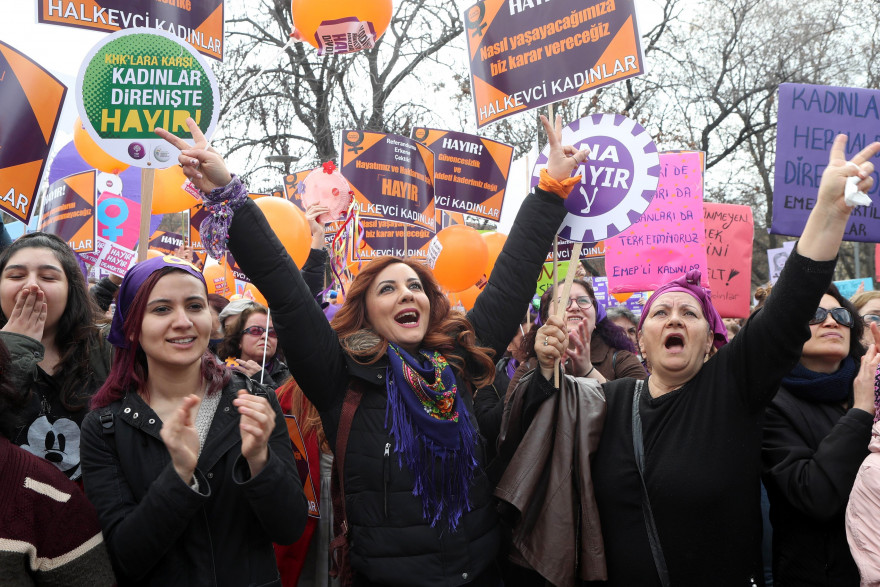- Prof Nora Şeni is a historian, geopolitician, at Paris 8 University, and a former director of the French Institute of Anatolian Studies. Currently, she is the Editor-in-Chief of Observatoire de la Turquie Contemporaine and co-editor of RadarGazete.com. She sat down with FTP published on May 6 to talk to us about upcoming elections and the cultural factors that have led Turkey to its current state.
- This year, 2023, is rather remarkable: it is the Turkish Republic’s 100th anniversary. Why has TR tumbled into this massive crisis at every level?
How did we end up here? This is the right question to ask, but it is a matter too complex to address in a few lines. So I am going to briefly refer to one salient aspect of the political culture in Turkey which led to an incapacity of opinion makers—media/press, but also scholars, writers, artists, economic elites—to correctly identify early on the signs, symptoms and consequences of several political turns of Erdogan’s regime toward a paralyzing authoritarianism.
I think that part of the reason for this incapacity derives from the indifference, not to say the ignorance, in Turkey about the history of the Second World War and the political evolution during the thirties that led to it.
Is it because Turkey did not participate in that war that it remained outside of the occidental post-war way of thinking—particularly its literature, art production, and general mentality? The post-WW2 way of thinking in Europe and in the US was organized around understanding how such a barbarian plan, the destruction of European Jewry, could be built up within the most developed and sophisticated part of the world.
The European Union is the very creation of this wave of belief that put Peace above all other values together with the motto “never again.” The Turkish intelligentsia which supported Ankara’s candidacy to the EU was far more attracted by a European way of living than it was genuinely curious about the lessons of democracy taught by WW2.
What do you see as the solution for a stable and peaceful Turkey, given the culture, demographic changes, and global instability? Any suggestions?
One of the most toxic gifts Erdoğan has offered Turkey is to have established an “us and them.” It will be difficult to erase the deep traces left by these cleavages – especially in lifestyles and in religious practices.
Changes in educational structures have brought an end to co-education between boys and girls in a significant number of schools (imam-hatips), imposed the veil on 9-year-old girls, and introduced retrograde and racist concepts.
One should remember the anti-Semitic “pedagogical” posters in the corridors of secondary schools, discovered on the occasion of the launch of a Turkish TV series evoking the Holocaust.
The theory of evolution has disappeared from the textbooks, the concept of jihad has entered them, and a ‘religious and hateful’ youth have been trained according to the explicit will of the president. It will be difficult to get rid of this conditioning for a generation that has come of age having only known the AKP regime.
The same kind of brainwashing is taking place in Russia for the entire Putin generation, as denounced in the book Un peuple qui marche au pas by Veronika Dorman and Ksenia Bolchakova.
In Turkey, where violence against women is no longer illegal after withdrawal from the Istanbul Convention, one of the first areas of reconstruction—if Kılıçdaroǧlu wins—should focus on the gender question.
The political force that I believe is capable of stimulating and driving a deep change in Turkish society is the will and determination of feminist opposition, of young women’s actions wherever they are.
I know that their influence will flourish with or without a new regime, in politics, at a national and local level, in research, in universities and inside the artistic world; in literature, cinema, design, architecture and city planning, wherever they want to do their way.
If Kılıçdaroǧlu ends up as the winner and if Erdoğan wisely and peacefully leaves the presidency, which I think is unlikely, a period of transition should begin to allow a reconfiguration of political and social power relations that reflects the true weight of political and institutional actors in public, social and economic life.
The reconquest and enlargement of a public space and of civil society., as well as the re-establishment of the rule of law, should help to get rid of identity questions like ethnicity and religion, and to put an end to the assignment of a singular and unique identity.
The creation of provisional institutions should contribute to this transformation, of which the return to parliamentary rule is a crucial step. An update of monetary policy, putting an end to the insane financial measures taken by Erdoğan, will help overcome inflation and the economic crisis.

